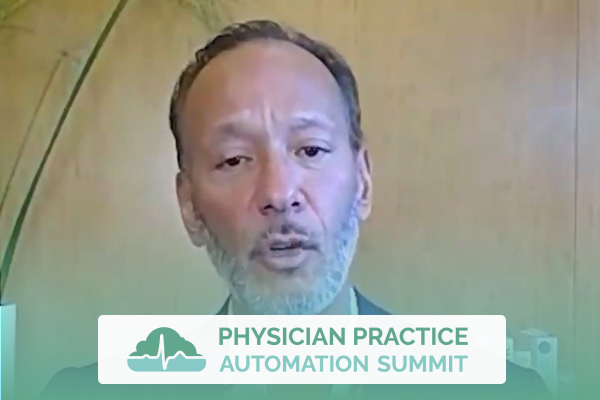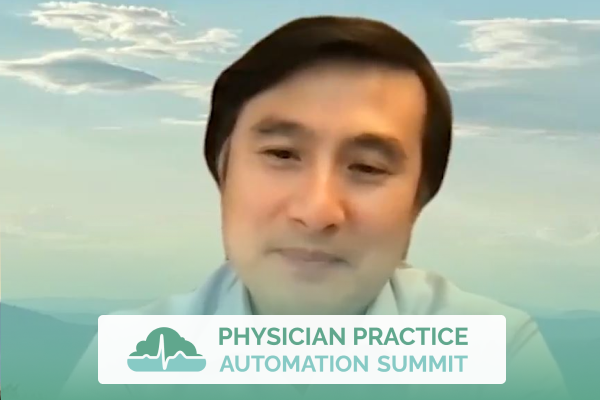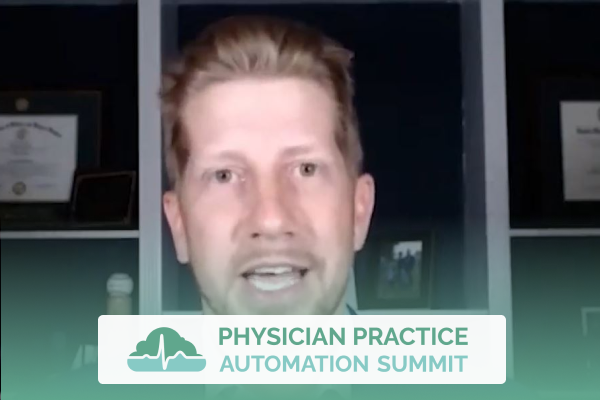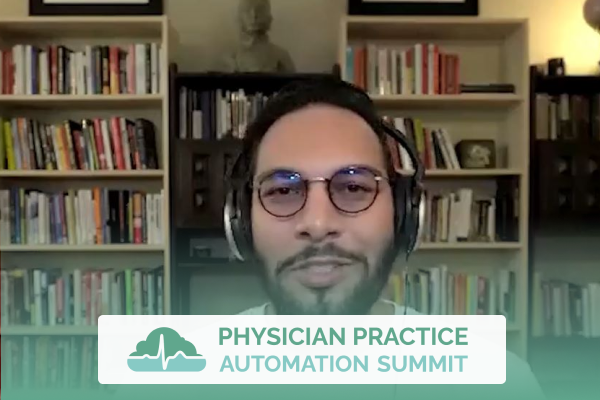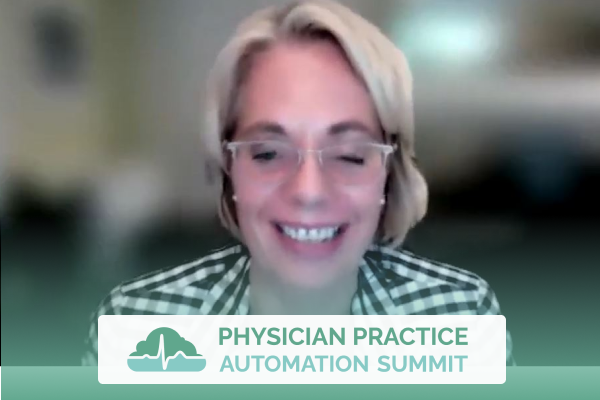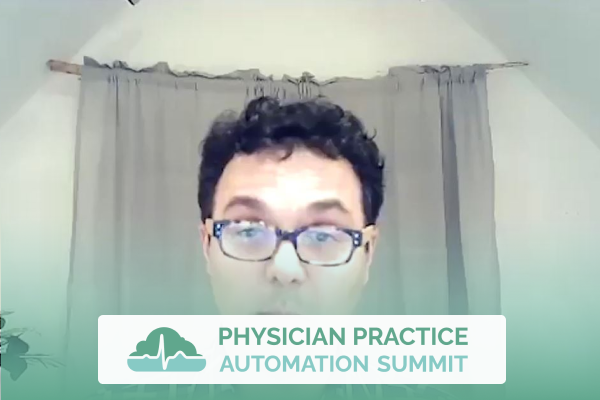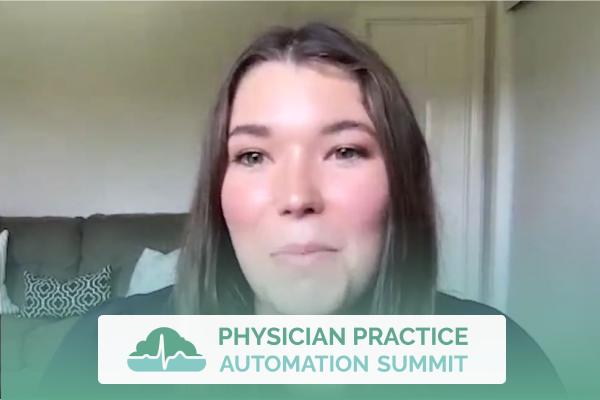Join the discussion below
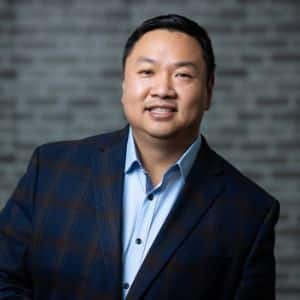
Dr. Ruan is the Founder and CEO of Texas Center for Lifestyle Medicine. He devotes his career in practicing and building systems that allow for efficient delivery of healthcare. He is a board certified internal medicine physician but also have advised with companies to improve their workflow, company culture, marketing,... Read More
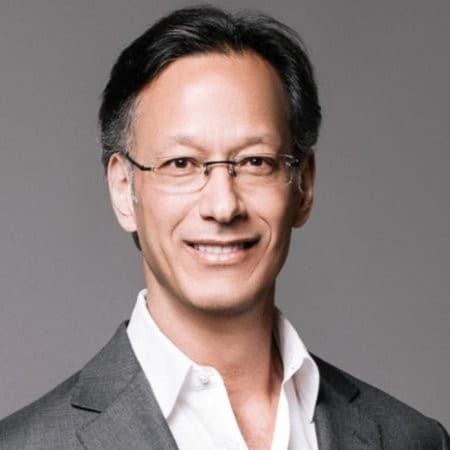
Dr. Raffaele received his B.A. in philosophy from Princeton University and his M.D. from Drexel University Medical School in 1989. He trained at The New York Hospital/Cornell University Medical Center and was formerly a clinical assistant professor of medicine at Dartmouth Medical School. Dr. Raffaele is board certified in internal... Read More
Cheng-Huai Ruan, M.D.
Dr. Joe Raffaele is an amazing person who’s really accomplished quite a bit in his life and his career. So he went from an internal medicine doctor to one of the first doctors that really focus on anti-aging and then to clinical sciences of anti-aging, and now is the CEO of an entire tech platform while still practicing medicine as well. It seems like a huge, daunting task, and he’s been taking the last couple of decades to really achieve those tasks, but what I really wanted to know is what is the mentality really behind that? And Joe is such a genuine person who really wants to get his message out there that if we set on a path, we as physicians can be innovative, can succeed, can do the things that we want, and also enjoy the actual process. And so Dr. Raffaele is a board certified internal medicine doctor in New York in his own practice and has developed something called PhysioAge, which is a tech platform that looks at the biomarkers of aging.
And also is a world renowned speaker, international speaker as well at multiple different talks, and I’m really honored to have him on. He’s been the face of TA Sciences, which is a company that’s focused on telomere biology. And actually Dr. Raffaele actually has his own summit coming up just after the new year in 2022, called the Telomere Summit as well. So I can’t wait to introduce him to the stage, but right before I do that, I wanna thank you for being on here, and if you think anybody can really benefit from coming to the summit, go ahead and share the summit with people, get people on. It’s not too late, and plus it’s available for replay as well. So without further ado, I wanna welcome Dr. Raffaele to the show, so welcome. I’m so happy to have you on the summit, welcome.
Joseph M. Raffaele, M.D.
Thank you, Cheng, happy to be here.
Cheng-Huai Ruan, M.D.
So, I think that both of us were in a state where we really wanted to transition from internal medicine at one point and sort of develop the things that we truly believe are passionate about. So I really wanna know why and how did you actually make that transition from internal medicine practice to what you’re doing right now, which is longevity medicine?
Joseph M. Raffaele, M.D.
Yeah, so I trained in an internal medicine program that was one of the first primary care internal medicine programs at Cornell University Medical Center in New York in New York Hospital back in the, geez, early ’90s now.
Cheng-Huai Ruan, M.D.
Yeah, that’s where I did my residency, by the way.
Joseph M. Raffaele, M.D.
That’s what you did your residency?
Cheng-Huai Ruan, M.D.
Yeah.
Joseph M. Raffaele, M.D.
Oh, wow. I didn’t know we had that in common. So that program was probably there before you were there, and the reason I went into it was because I was actually passionate about the whole body, the whole person in health. I had some health challenges when I was younger, broken bones, and neck pain, back pain. At one point, I almost had to take some time off from college. So I was searching for a holistic thing, so I didn’t wanna sub-specialize, I wanted to look at the whole person. and I wanted to get my doctor legs, so I went to this primary care program. I enjoy my intensivist stuff at Memorial, that place and the ICU, etcetera, but I really wanted to see what it was like to be a doctor in primary care.
So I took off for New Hampshire, I stayed in the academic system, the Dartmouth-Hitchcock system, but was an adjunct clinical professor, but mostly without residents, some medical students came through. So I was there on the front lines, seeing patients all through their care, admitting to the hospital, et cetera. And after about five years of that, I realized that what I was doing really wasn’t making a whole lot of sense. I was plugging holes in the dam when I really wanted to think about how we could keep dams from getting older and needing to have the holes plugged in them. And at the same time, my parents, I was a little late, fair to them. So my parents were in their late 70s, early 80s, and starting to struggle with health issues.
Cheng-Huai Ruan, M.D.
Oh, I see.
Joseph M. Raffaele, M.D.
Yeah, Alzheimer’s disease. So I started to look around to see what there was available to help my parents because back then, there wasn’t much to do as there still isn’t too much to do although we can talk about the things that one can do about that at this point, multi-modality approaches. So I started to look at literature and it was a point in my life when I could take a little break financially, and I went to a conference out in Las Vegas, one of the earliest A4M conferences, the American Academy of Anti-Aging Medicine. It was a pretty star-studded crew that was there, Marc Blackman was there, Walter Pierpaoli, these may be names from an early academic part of sort of age management or anti-aging medicine, as it was called back then. And I just got turned on.
I was like, “This is fantastic. “This is what I wanna do. “I wanna see what the evolutionary theory of aging “has to tell us about why this happens to us “as we get older, the universal phenomenon.” So with my partner who had the same interest, so one of my 11 partners at the Hitchcock Clinic, we decided to move back to Manhattan, open up a practice, and from that movie, “Field of Dreams”, build it and they will come, and it took a while for them to come. So in terms of how to build a practice from scratch without having to wait around and wait for the phones, that took a while, but eventually they did come, we got successful, since I was one of the earlier doctors doing this kind of thing, I was asked on daytime television shows, and NBC, The Today Show, et cetera, to sort of explain my new approach to medicine, and that made the practice take off at that point. So that’s just a relatively brief intro into how I got to where I am now.
Cheng-Huai Ruan, M.D.
You didn’t just magically get on television. I’m sure there was so much you haven’t uncovered yet, and especially with a practice startup. And then not only that, doing things a bit outside the box and then putting that out there, I’m sure there was the transition pain point, and then also just maybe a little bit of a fear and intimidation in the beginning, right?
Joseph M. Raffaele, M.D.
Oh, no question about it. I did a little moonlighting at an urgent care center when I first came here, because literally, we took out ads and we went into the prominent magazines, Avenue Magazine, and other magazines in Manhattan to try to get a good clientele coming cause we knew that we wanted to be a cash pay practice because what I did was to prevent disease and to maintain health, and insurance doesn’t pay for that. Let’s just be clear about that upfront. There’s a lip service that’s paid to it, but really, it doesn’t make that much sense. Insurance is about the spreading of risk amongst the large pool of something happened to just one or two people, so that then that can get paid for. And when everybody needs the same kind of care, that’s not what insurance base is, and that’s why I decided to go out of it. We waited, but eventually if you start having good outcomes, which we did with patients, they start to tell other patients.
And then one of the appearances on television got me invited to a round table with Bob Butler, who was the founder of the National Institutes of Aging at the time, and he wanted to convene a panel to talk about this new anti-aging medicine that was out there, that had been making headlines. So I went to it and what happened was it really was sort of bringing the sacrificial lamb to the slaughter, these gerontologists and geriatricians all wanted to tell me why I shouldn’t be doing what I’m doing, that the science hadn’t caught up yet, et cetera. But in the end, what I learned from that was that Bob said to me, “Look, Joe, you seem like a smart guy, “you went to good schools, you’re well-trained. “You call yourself an anti-aging physician. “What are you doing to measure the aging process?” And I was like, well, my patients feel better, their sex drives are better, they’re more muscular than leaner. They’re doing things they weren’t doing before, they’re sending their friends in. I must be doing something right.
He goes, “Yeah, I’m sure you are, “but again, if you’re a high blood pressure physician “and you lower blood pressure, “you measure the blood pressure, “what are you doing?” So that’s what set me off on the path of looking at biomarkers of aging and trying to practice evidence-based medicine in the context of aging. And that is what I think in the end, set me apart and our practice apart, because patients could see, not only did they feel well, look well, their friends were saying, “You got more energy,” but I could give them metrics and show them that in fact, I was slowing down aspects of the aging process, some aspects, some function I was improving. I wouldn’t say I was turning the clock back 100%, but that kind of proof to the patient was I think, a real game changer.
Cheng-Huai Ruan, M.D.
Yeah, so if I had to label what you did, and it’s very respectful, is that you had a why. You had a passion and a reason that was very close to you, your family, and you weren’t really seeking out some of the answers that was done in traditional training, so you sought it out yourself in a very early process at that time, where not a whole lot of people were on board with the anti-aging process at the time. And then you were challenged, your challenge was the outcome. How do you know that what we’re doing for our patients is actually good? And how do you validate that within a scientific community? So I feel like a lot of doctors have these great ideas, but there’s always challenges when it comes to outcomes, and insurance companies measure outcomes, is it blood pressure data? Medicare looks at A1C reductions, but these data points are basically disease outcomes and not necessarily functionality outcomes, until very recently, and in fact, 2022 CPT codes and the AMA Committee actually talked about, let’s look at some outcomes that are outside the box, like the social determinants health and stuff like that.
So I think there’s a slow shift into outcomes data, but the reality of it is I think physicians should actually own the outcome data, not the insurance companies and not the government, because that allows physicians to be innovative and creative in the things that we do, is exactly why we now have you on the show. But how do you balance this? How do you balance this clinical practice and doing the innovation part but also making sure that from a physician leader standpoint, things aren’t just like going to the side and blowing up? How do you have that transition within your new practice?
Joseph M. Raffaele, M.D.
Well, it’s always challenging, as I’m sure you know. You run a pretty nice organization down there in Texas. Look, I don’t have a lot of hobbies. I work out, but my hobby is learning more about my field. You don’t hear a lot of internists saying they love what they do, and I do love what I do. And I still consider myself an internist, although I don’t do acute care medicine anymore, because I look at the whole body. So to balance it, you just have to consider that what you’re doing when you’re reading a paper, that’s not work, that you’re enjoying it. If you stop enjoying it at that point and you go do something else. You also have to put together a good team around you, you have to know how to delegate, and that took me a long time.
Cheng-Huai Ruan, M.D.
Yeah, definitely.
Joseph M. Raffaele, M.D.
When I was a resident delegate to the fourth year medical student, the intern, etcetera, but you learn that skill, but when you open your own practices, your own baby, it’s hard to let go of the reins, and you have to build a team around you that you trust, like an office manager that can deal with the patients, look at the financial issues, etcetera. But I don’t talk to patients about financial issues, I let my people talk to them, because I think that that’s important to keep that out of the equation between the physician and the doctor. Even though it’s clearly important, and I want my patients to perceive that they’re getting value for what they’re doing, that takes a big pressure off, one of those pressures that you have as a doctor. And the other thing I love about my practice that I’m sure you love about yours too, is that patients don’t have to come see me. They don’t wanna see me, they don’t see me anymore. Nobody’s telling them to come see me, they’re not definitely ill. They’re coming to me for my help to make them function better and potentially live longer in a better state of health.
Cheng-Huai Ruan, M.D.
Yeah, I call that the hero versus died philosophy. We physician really should be the guide to allow the patients to be their own heroes, versus a lot of doctors are the actual heroes for the patient. That’s where a lot of burnouts really occur between the physician-patient relationship but I think that’s exactly what we’re talking about. What really interests me about you is that you maintained your identity as a scientist and that’s really cool because we don’t necessarily equate, “Okay, I’m gonna start my own practice “yet I’m still a scientist and I’m a data nerd” and wanting to pursue my own field. So how do you do that? How do you mix clinical practice as well as being a data scientist and incorporate that in? What drives that functionality for you?
Joseph M. Raffaele, M.D.
Well, at first I’d say this, I went into primary care internal medicine. You think that somebody that did that wasn’t really a scientist type necessarily. I’ve always been very curious and inquisitive to philosophy major, et cetera. But I was willing at that point to listen to the guidelines and apply them to my patients. When I made the shift out of the disease sick care model to the healthcare model, where we actually try to promote function in health with a vision to just preventing disease, I had to start thinking out of the box and I had to start going to the literature directly myself. At that time, the internet was opening up. PubMed was opening up. You’re able to get access to this stuff. And I consider each of my patients NNF1 so that the research that you do, you don’t just take the guidelines and say, “Okay, maybe they fit into the guidelines, “and this is what I should do.” You look at them in ToTo with all the data points that you can, and then you basically look for studies that apply to them.
So that gets you started, and then once you get started down that, you have to start exploring pathways, both molecular, physiological, et cetera. And it’s constantly a narrative that’s interweaving and that’s what keeps you charged up about wanting to do it. One thing I would say also is, get yourself a good reference packaging software. Originally, I used EndNote, which is great. Some people use Mendeley. The thing that I love using right now is Zotero, Z-O-T-E-R-O, it’s fantastic. You can produce bibliographies for yourself, for patients, for papers. If you have an interesting paper, you just click up in the corner when you’re on PubMed and it drops it right in there. And then you can go back and see that list of things. So that makes it easier for me to keep track of all the different areas, cause I’m not just in one specialty. When you’re in this management longevity, you’re looking at every organ system because it all gets affected by the aging process. I think I became more of a scientist and then got the opportunity to do clinical research in my office, and that’s when think I became more of it. I realized that you have to do that in this day and age of medicine, if you’re gonna take the best care of your patients.
Cheng-Huai Ruan, M.D.
Absolutely. You have, I believe your own summit coming up as well, right?
Joseph M. Raffaele, M.D.
I do, we’re in the middle of it right now. I’m talking about telomere biology and its applications and other aspects of the hallmarks of aging that affect telomere biology.
Cheng-Huai Ruan, M.D.
Yeah, that’s beyond me right now, but how did you even get into telomeres? How did that become a thing for you?
Joseph M. Raffaele, M.D.
Yeah, so serendipity really, you have to keep an open mind and you have to keep yourself open. People look back in their lives and go, which doors do they open? Which doors do they not open? And this was a door that I opened that was a weird door, sitting in my practice. And someone knocked on the door and said, “I’m gonna represent this company “and I wonder if you’d like to meet the founder “to see whether or not “you’d like to offer the product that they have.” That’s maybe like a sales rep type thing, but this wasn’t from a pharmaceutical company. This was something about a brand new type of supplement that had been well-researched cause it started as a drug, as a new investigational drug at a corporation called Geron. The company moved away from aging toward cancer therapeutics. And so they sold off the rights and Noel Patton, founder of TA Sciences, this company came to me after that introduction and I said, “Okay, I’ll meet this guy. “That sounds kind of interesting. “I don’t know much about telomeres, but why not?” I thought I had been doing a lot of hormone optimization, exercise, antioxidants, diets doing well there.
And I thought, I’d gone to the Endocrine Society meetings for seven years in a row at that point, or more than that. And I thought it wasn’t like I knew everything there was to know, but I felt pretty good about that aspect of my practice, but I knew there was more to aging, so I said, yes. What we ended up doing was following 100 or so patients over the course of the year taking my supplement protocol and his telomeres activator and measuring many, many biomarkers of aging, both molecular, cellular and organ-system based, and to see what the effect was over a year, and we published that in 2011 and then a second paper in 2013. I’ve been doing more papers in telomere biology since then. So it came about that way. I said yes when I could have said, “No, I’m too busy,” but I’m glad I said yes.
Cheng-Huai Ruan, M.D.
No, that’s great because I think you hooked into your own curious brain. And when you get hooked into it and understand the science, understand the data about it, and that’s what creates a lot of joy, I think in life and a lot of growth and contribution to the medical community. I just wanna tell doctors it’s okay to be curious, it’s okay to do to your own thing, whereas you have four other speakers on this summit that talks about how to really do your own thing with your own medical practice and everyone took it sort of a different direction, whether it’s academic, whether it’s clinical research or basic science, it’s okay to do your own thing. And we have someone that went into culinary medicine as well.
The air of opportunity is always going to be there and so I feel like a lot of doctors may feel a little burnt out when the air of opportunity comes. So they go into sort of this shutdown mode and then you can miss really cool things that come your way. But you’re a prime example of, you just said you love what you do. And then you’re always that curious brain and absorbing more of the data and the more of the knowledge and continuing your own path and now you’re about to launch your own summit for telomeres. So congratulations on that.
Joseph M. Raffaele, M.D.
Thank you. Yeah, what is that chance favors the prepared mind? I think it also favors somebody who’s willing to take a chance.
Cheng-Huai Ruan, M.D.
Absolutely. But let’s talk about something else that I’ve been very curious that you’re developing, which is physical age health analytics. Why don’t you talk a little bit about that and what it’s intended to be.
Joseph M. Raffaele, M.D.
So that was an offshoot of, well, let me a step back a bit. The rest of the conversation with Bob Butler was, “What are you doing to measure these things?” So I went on a deep dive into how you measure the aging process at many different levels and found that there was a burgeoning literature of biomarkers of aging, which are things that correlate with chronological age, physiological markers like systolic blood pressure, and then even more, a better marker arterial stiffness, pulmonary function, FEV1, and then all the way down to telomere length, and now there’s DNA methylation, et cetera. But I did that deep dive and I said to the owner of TA Sciences, Noel Patton, for me to recommend this, it needs to lengthen telomeres or keep them from getting shorter. But it also has to have an effect on major organ systems. And you’re gonna call it something that’s having a beneficial effect on patients.
So let’s measure all the assistants. So we did, and I did it along with a statistician who was a geneticists, the head of the Genome Technology Center at Stanford at the time, Joachim Kuhn and he prints the numbers. We together looked at them and in addition to the stuff that we published in the paper about the reduction in senescent T-cells and decrease in shortest telomeres, and then ultimately other metabolic health markers, we found that four biomarkers that were non-blood in two blood biomarkers, if you put them into a multi linear regression model, ended up predicting chronological age better than any of the individual ones and each of the individual ones contributed independently to it. That was a bit of an aha moment where we said, wow, we have a way of knowing whether or not in ToTo, you have a beneficial effect of something in a patient that you’re doing.
So that was the founding of PhysioAge health analytics. We then put together a software development team and made it web-based and continued to add other markers to it, to not only tell people where they were in the aging process, way before disease, starting in your mid 20s. Are you more like a 20-year-old? Are you more like a 30-year-old? I have 50 year olds who are more like 40 year olds in overall and I can tell them based on the markers that we measure and then putting them into the system, what they’re doing both through my prescriptions and supplement recommendations, their lifestyle changes, their diet changes, their exercise changes, how the needle is moving in their aging trajectory and then they can look at it themselves in a way that is easy to understand. We give an overall age for the overall physio age, we give an individual age for the cardio age, for the pulmo age, the keto age, the telomere age, et cetera, for the major biomarkers of aging that correlate highly with age.
And then we do 600 other markers, depending on how many patients are willing to pay for, to look at other aspects of health that may not correlate tightly with age that we know what is good, what is okay, what is borderline and what is bad, so we give a grade, A through F. So, PhysioAge health analytics is a biomarker of aging system, a health report card, and then it’s a recommendations engine that helps patients and doctors using it in tandem, or what are the aging process and health in the first place, what their weak systems are and their strong systems are. And then how it’s changing over time. That’s what I call a meaningful use for an EHR. It’s not a full EHR at this point, but it gives the metrics for you to know, you mentioned hemoglobin A1C, for instance.
They’re gonna look at that and they’re gonna say, “Okay, if it’s 6.0, it’s pre-diabetes, “if it’s 6.5 is diabetes,” but they’re not gonna say anything about 5.5 versus 5.2. Well, if you go from 5.5 to 5.2, you’re doing yourself a whole heck of a lot of good. If you just say, okay, well, you’re normal or you’re abnormal, you’re either below 5.7 or above 5.7, a patient who’s gone from 5.5 to 5.2 is not gonna get credit for the stuff that they’ve been doing, be it belly fat loss, exercise, muscle mass increase, berberine, metformin, you name it, whatever it is, moving further towards optimal health is what the software is designed to help people do through the full range of value on any physiological parameter.
Cheng-Huai Ruan, M.D.
Got you, so it’s diving deeper into the dataset and understanding not just what’s abnormal or what’s normal, it’s what should be normal for you depending on assuming a set of goals that you want to achieve. So that’s great. I think that’s really the missing link in what we consider to be medicine these days. So I’ll do an applaud for that. So earlier you said you didn’t have a whole lot of hobbies. I beg to differ. I think you–
Joseph M. Raffaele, M.D.
I just don’t have a whole lot of time for my hobbies.
Cheng-Huai Ruan, M.D.
This seems like a hobby too because right now, you went from internal medicine to longevity medicine, to software developer with a Stanford statistician to a software engineers. This sort of is not your typical path as a physician, but how did you even think about, “Hey, I wanna do this and I’m gonna get a statistician “and software engineers,” or did you already know them? How does that even come about?
Joseph M. Raffaele, M.D.
Well, originally, I was introduced to Joachim through the company because they needed a statistician to analyze the data. And then ultimately, Joachim did some software work for us, but we needed somebody who was not as smart as he is, which is not to say that a software engineer is not smart, but not a PhD in genetics and bio statistician. So we found actually online looking for, there’s some great tools for that, looking for a software developer and for awhile there, I tried working offshore that worked out somewhat. There were a lot of ups and downs in that process. I still have a hard time thinking of myself as a CEO of a software company, but I did have my lumps and bumps from it, that’s for sure. And yeah, it is a hobby cause I like it. I do enjoy it. I like seeing the software come to fruition. I like using it in my practice. I like getting feedback from other doctors that are using it and showing and seeing how it’s helping them manage patients. So it’s a hobby in that regard. I’m trying to turn it into a relatively bigger business at this point, and we’re looking to develop it into a larger EHR, although it’s used around the country and around the world in doctor’s offices at practices kind of medicine.
Cheng-Huai Ruan, M.D.
Got you. Are you still in clinical practice right now?
Joseph M. Raffaele, M.D.
Oh yes.
Cheng-Huai Ruan, M.D.
And it’s gracious. You have no time.
Joseph M. Raffaele, M.D.
Yeah, so that’s the thing, there’s not the best balance in that regard, but again, I really like what I’m doing and I like seeing new patients and I have a good team around me to help manage patients as well for some of the stuff that I don’t necessarily need to get involved in, which doesn’t mean that I don’t pick up the phone and call my patients. And that’s the other thing is that in a practice like mine, it’s very high touch. We take care of the patients, say they will text me at times. I’m on call 24 hours a day although they’ll call up and saying, “I’m aging too fast.” There’s not emergencies in that regard, but we want the patients to feel like we care about them and we do. I’m in full-time clinical practice. I set aside two days a week to do software development to participate in calls and learning new things.
I was just on a really interesting call earlier My patients want from me more than anything else, the software’s great and important and it gets integrated in the software, what they want from me is to tell them what in the fascinating fast-paced field of longevity medicine, I think can be applied to them that’s cutting edge and what shouldn’t be applied to them. What is just not ready for prime time for them based on their risk benefit equation. So I spent a good amount of time doing that, which I think is important and it’s fun too. Before COVID I traveled a lot. I went to conferences all over the place in Europe, Asia, it was a lot of fun. Getting back on that again, but conferences sort of, maybe we’ll be virtual, maybe we won’t be, we’ll see.
Cheng-Huai Ruan, M.D.
Right. Like this one, this is the virtual conference.
Joseph M. Raffaele, M.D.
That’s right.
Cheng-Huai Ruan, M.D.
So there’s a lot of doctors out there that are listening and they also have their own desires wanting to be innovative and entrepreneurial world and maybe startups. What are some suggestions or advice you have for these doctors at this point who are just starting out to think about these things?
Joseph M. Raffaele, M.D.
Yeah, well, first of all, don’t do it for the money. It’s too much work for that. And they’re off buying Bitcoin, I guess if you wanted a while ago. I think you have to have a passion about it because it’s gonna be a lot of work and that’s gonna come through to anybody who’s thinking about investing in you. If you have an idea, you’re passionate about it, you see it’s use case, I use my software in my practice every day and I couldn’t function without it, at this point. It’s important for me in the kind of medicine that I wanna practice. So I think that that first of all is, and then also, PhysioAge is not a household name yet. So I’m giving advice out here about a company that’s still growing.
But I think that you wanna try to do things as, I don’t say small, but you wanna be careful about accepting a lot of money if you wanna have a plan in place, incremental progress, set milestones, and then have a team around you that just has the same passion and executes and keeps you in line because it is difficult. I’m not gonna say it’s not difficult. It is very difficult to mix clinical practice with having a company in software development because you’re never on break basically. If you’re not seeing patients, you’re thinking about what you wanna do with this other stuff. So I think that’s where having the passion is important. Otherwise, you’re just gonna ground into the ground.
Cheng-Huai Ruan, M.D.
Yeah, absolutely. In my experiences, I’m kind of straddling the fence myself, as several businesses and being administrative as well as in clinical practice, full-time as well, it’s hard and actually uses different parts of the brain and what you do as a physician, the role is quite different as a CEO or as any sort of physician leader, managing an operations and trying to guide and everything like that cause there’s a performance indices need to set, there are trajectories. And so I do think that what you said is really echoed by a lot of the other people that’s on the summit talking about how do you execute certain things and just taking it one step at a time, not doing too much. And if it blows up, that’s fine, then just come back a little bit and then retrace your steps. I think that I’m under the category of a guy that’s always looking forward to failing, but wanna be able to make sure I fail forward and learn from it and then utilize that concept to drive forward.
Joseph M. Raffaele, M.D.
Yeah, I’ve been doing that a lot. I’ve never called a . Failing forward, it’s like I didn’t really fail, so I can’t quit, but I didn’t get exactly where I wanted to go. So I made some progress. So yeah, it’s interesting. The only thing I would say is that remember that you’re a physician. Some people maybe are more business people and went into medicine cause they wanted to please their mother or something, so they might have great business heads. But I think a lot of physicians, they’re obviously smart people, I am very careful about choosing people around me who can handle the administrative and the financial. I know what’s going on, but I don’t get in the weeds with that and I have colleagues of mine in the New York area who are very hands-on about that. Maybe cause they’ve gotten burned at some point by a business person, but it really is tough when you’re trying to do the numbers stuff. That’s not your strong point, at least that’s not my strong point and I think that you have to find somebody, a team that you trust and let them take care of the numbers. Keep an eye on it, for sure but you know about physiology, pathways, patients, things like that and that’s maybe I think the thing to keep your focus on.
Cheng-Huai Ruan, M.D.
Yeah, absolutely. We all have our different strong suits and weak points and no matter what it is, we have to make sure that there’s a team around us and we have to be humble to the fact that our team are gonna be able to see things that are invisible to us. And our communication has to be respectful so they let us know what these pain points weak points are. And I feel like a lot of leaders feel like we have to take on everything ourselves, we have to do everything ourselves. And what happens is that the team becomes a bit intimidated because it’s going every which direction and I see that quite a bit. I used to be that type of leader as well. So I’ve tasted that pain point, but you’re absolutely right. I think the team around you is not only going to be protecting you, but we have to let them understand that from a communication perspective, it’s gotta be mutual. It’s gotta be respectful, but we’re here to protect each other. We’re here to work for each other as well. So I’m very, very happy you said that. So what do you think is that you learned recently just about being the CEO running company that you wish you knew when you started this whole journey?
Joseph M. Raffaele, M.D.
I think that one of the lessons that I’ve learned is that it takes a whole lot longer than you think it’s gonna take. That’s not a new lesson to be sure. For the first five years or so, I was beating myself up about the fact that it wasn’t exploding because you hear all about all these companies that explode that have super scalable models. My original model in our practice, not in our practice, but in the software, there was hardware and software. So that was a little bit of a pain point, but I think I had expectations that things would be rapidly taking off and like you said, they continued to get better. And I think now I’m taking comfort in the pace that things are going, and then you see, it also doesn’t go linear. It goes all of a sudden, and some introductions are made and all of a sudden, a whole explosion of opportunities takes place.
I’m at that point right now, which is very exciting for me, people looking at the software that may wanna make a major infusion of capital into it, to grow it to a big place. But there’s things to work on while you’re waiting for that, perfecting things, working on things to make it better and don’t lose. I think I’m beating myself up less now about not being a software billionaire or multimillionaire at this point, particularly since I still love my day job too which is three days a week kind of thing. I think that’s not perhaps new, but I think I just would echo that you really have to take care of yourself, otherwise you’re gonna just be.
Cheng-Huai Ruan, M.D.
You’re right. I also echo that sentiment because you do expect things to just kind of take off. In my practice, there were so many different obstacles that I did not see, everything from Hurricane Harvey to employee and staff issues and communications and patients stuff. That’s the reason I think you’ve talked about at the very beginning, is that you don’t wanna do it for the money. You wanna make sure that you do it for the passion of it because as long as that passion and that drive is there, it’s all worth it in the end. Later, the money will come. Like you said, you build it slowly and steady and then something happens where it can go higher or something happens when you all of a sudden realize, this may not be the direction that I wanna go and it’s okay. It’s okay, let’s just pivot to another direction and then work on that level of passion.
Joseph M. Raffaele, M.D.
That’s absolutely right, yeah. There’s been punctuations over the past 25 years, 9/11, now COVID that definitely make you think, “Wow, where am I going from here?” If at core, you know that what you’re delivering is useful and helps patients, helps doctors take better care of their patients then, there’s always gonna be need for that. It has to be something that’s actually working but I think that’s the thing that’s kept me going. The other thing is there’s just such an explosion of knowledge in this field that because of social media and because of the internet, people have a taste of it, but they don’t have a good vetting of it. And I think that that’s an area that doctors really need to step in and just in their own practices and I find it that that’s something that I’m doing on a regular basis.
Cheng-Huai Ruan, M.D.
No, that’s beautifully put. So Joe, I wanna thank you for being on the summit and it’s so great to talk about the things that are not really often talked about in the physician’s side, which is going through burnouts and startups and tech and all this stuff like that but that’s what this summit is really designed to do. But thank you for sharing your experience, what a unique journey that you’ve had, and that you’re gonna continue to have and I really appreciate you just being vulnerable as well with the doctors here. So thank you for that as well.
Joseph M. Raffaele, M.D.
Well, that was great speaking to you and I look forward to keeping the conversation going between us.
Cheng-Huai Ruan, M.D.
Absolutely. So how do people find you if they wanna know more about what you do and the software and everything like that?
Joseph M. Raffaele, M.D.
So the software is physioage.com, P-H-Y-S-I-O-A-G-E.com. That’s where you can learn about what the software does, how it functions. I regularly post on Instagram @RaffaeleMD, R-A-F-F-A-E-L-E M-D. Those are the two main sources. I’m on Facebook, but mostly Instagram and I have a practice website as well, Raffaelemedical.com for patients that are potentially interested, or for doctors that wanna come. Be a patient, Raff. Probably 25% of my patients are doctors. Thank you very much. It’s been a pleasure.
Cheng-Huai Ruan, M.D.
Thank you. Thank you so much for being on.
Downloads

